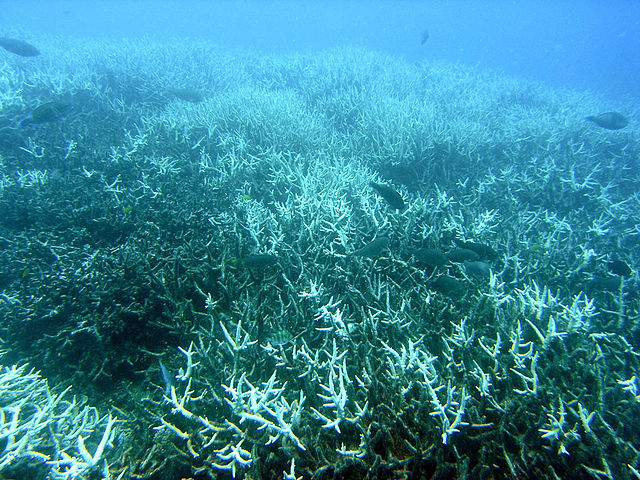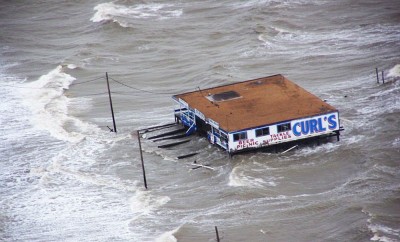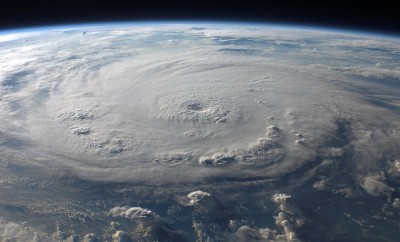Environment
The Not-So-Colorful Great Barrier Reef Is Dying Fast

Image: Wikipedia.org
The Not-So-Colorful Great Barrier Reef Is Dying Fast
When most people think of the Great Barrier Reef, they imagine bright, colorful coral reflected on the incandescent scales of teeming schools of fish. If you were to visit the reef today, however, you would only see forests of brittle white skeletons, the bones of an ecosystem that was once so vibrant and diverse it was frequently labeled one of the seven natural wonders of the world.
The Great Barrier Reef is a massive collection of billions of living organisms called coral polyps, growing on top of each other for thousands of years. Together they make up the only living thing on Earth that can be seen from space.
They also provide a habitat for some of the most unique and endangered species on the planet. Now they are dying. And the vital role they play in the ecology of the ocean is being threatened.
Persistently high global temperatures have resulted in the warming of the oceans. The coral, which has evolved to live at a very specific temperature, has gone through a process referred to as bleaching as a result. Bleaching occurs when the delicate balance between organisms on the reef is disturbed and the photosynthetic algae that all reef life needs to live disappears. As a result, the polyps die and trade their rainbow colors for a uniform bleached white.
A recent study has indicated that 93% of corals in the Great Barrier Reef have already gone through this process, and as the reef dies, the vibrant ecosystem it supports dies with it.
While corals are able to recover from this kind of bleaching, the general rise in ocean temperature is putting the reef at risk of the sort of sustained bleaching it can not survive.
Only time will tell if the Great Barrier Reef will be there for the next generation, but many now wonder if the loss of one of the world’s greatest natural treasures may be only a grim portent of the things to come if climate change is not stopped.





1 Comment